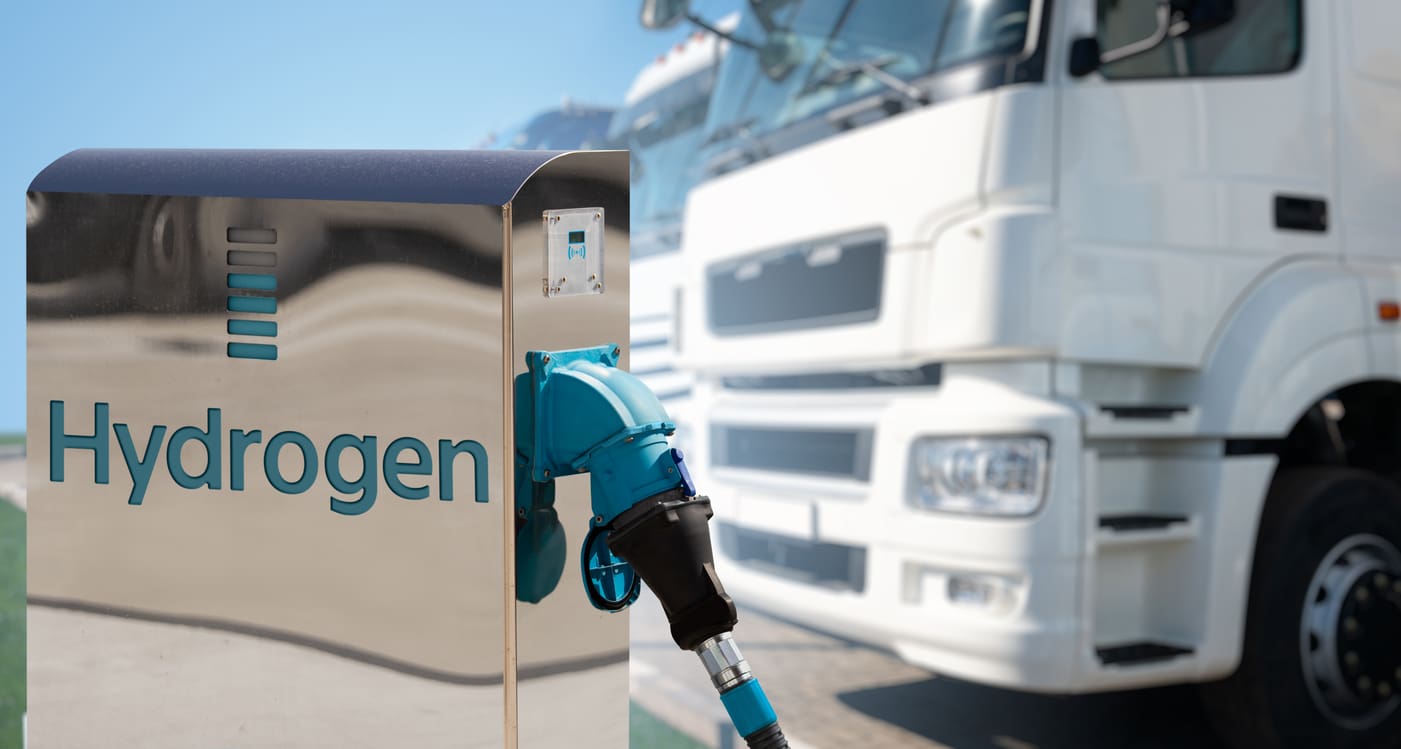What to Know About Zero Emission Trucks
Once a speculative possibility of the future, typically discussed within science fiction, increasingly zero emission trucks are coming to dominate conversations about the future of trucking. As the climate crisis becomes undeniable, and companies and countries across the globe begin to cut their carbon emissions from manufacturing, agriculture, and construction, the US trucking industry is seeing a shift from gas and diesel-powered trucks to vehicles that are sustainable in the longer term.
 While environmental pragmatism isn’t the sole motivation, it certainly seems like a lot of companies are keen to reduce their carbon footprint. A lot of truckers and industry experts are intrigued by the possibility of fleets of zero emission trucks hauling goods all over the USA and beyond. Continue reading to learn about the realities of this technology, and the changes which we can expect to see in the US trucking business.
While environmental pragmatism isn’t the sole motivation, it certainly seems like a lot of companies are keen to reduce their carbon footprint. A lot of truckers and industry experts are intrigued by the possibility of fleets of zero emission trucks hauling goods all over the USA and beyond. Continue reading to learn about the realities of this technology, and the changes which we can expect to see in the US trucking business.
Zero Emissions Trucks: Who is Embracing the Technology?
While zero emission vehicles which were powered with hydrogen and novel battery technology were once the preserve of small family vehicles, confined to short runs in major cities, recent innovations and research have created powerful zero-emission engines capable of powering multi-ton vehicles for hundreds of miles without the need for constant recharging. As the result of this developing technology, some of the best-known names in manufacturing, motoring, and transportation are looking to get in on the revolution in zero emission trucks.
The e-commerce and cloud computing company Amazon has already commissioned a huge order of 100,000 all-electric delivery vans from the electric vehicle company Rivian which it has been backing for some time. The first 10,000 of this giant zero emission fleet will be in service by the end of 2022, and by the end of the 2020s, all 100,000 will be on the roads, delivering products to American homes.
The Detroit-based Ford Motor Company, a mainstay of American vehicle manufacturing, is developing an entirely electric model of its classic Transit van, which will be capable of running up to 126 miles between charges, almost twice the current mileage for most Transit drivers.
While most orders and production are geared towards smaller vans and delivery-sized vehicles, a number of companies are looking to develop full-sized 18-wheeler trucks, and anticipate that in the next few years the majority of long-haul vehicles on the road could be powered with hydrogen rather than diesel or gasoline.
Daimler and Mercedes-Benz
Auto-manufacturer Daimler has announced its latest electric vehicle, a full-sized truck capable of carrying a 25-ton payload as far as 621 miles on a single ‘tank’, powered by hydrogen. By stacking its innovative hydrogen fuel cells two side by side, the company, collaborating with Mercedes-Benz, has pioneered a vehicle that is capable of operating as a serious alternative to current conventional fossil-fuel-powered trucks. While this technology is undoubtedly set to revolutionize the trucking industry, Daimler is set to begin consumer trials in 2023 and is only expected to roll out fully electric road haulage fleets by the second half of the decade.
Tax Incentives for Zero Emission Trucks
Several states have already announced plans to subsidize the costs of upgrading trucking fleets from traditional diesel and gas-powered vehicles to zero emissions electricity and hydrogen-powered trucks. New Jersey, New York, and California have all stated that they have pilot projects underway to supply tax breaks and other cash incentives. So far, state officials have stated that health and environmental degradation are their primary motivations for announcing the policies, which are expected to be rolled out in the new year.
Because the incentives are being administered on a state rather than a federal level, it remains unclear how this will affect long-distance trucking companies. Several key questions will need to be ironed out before the plans are unveiled. If a trucking company is headquartered in one state but contracted by an out-of-state organization to move freight from a third state to a fourth, how will the incentives work? This remains to be seen.
How Zero Emission Trucks Will Affect the Trucking Industry
As innovation in zero emission trucks speeds on, it is becoming increasingly clear that the world of trucking is going to change forever. Although the capital costs for purchasing an electric truck remain high, this won’t be the case for much longer, as increased technological innovation and a greater number of companies competing for customers inevitably start to drive prices down. It is likely that between grants for pioneering and tax incentives for trucking firms who embrace the new technology, within a few years a brand new zero emission electric-powered truck will cost no more than a standard diesel truck. As far as powering the engine, even with the comparatively short lifetimes of current electric vehicle batteries, powering a haulage vehicle with hydrogen cells rather than a diesel engine will be significantly cheaper.
As well as cheaper costs for trucking companies, it is likely that conditions for drivers will increase, too. Rather than driving an internal combustion engine around, the truckers of tomorrow can look forward to powering a much quieter ride, without the smelly and dangerous diesel fumes.
A lot of the current paperwork in the trucking industry relates to emissions and fuel consumption, and the ongoing maintenance required to keep rigs on the road relates to the moving parts in their gas engines. Trucks powered with hydrogen cells will allow for less mechanical work, and probably a substantial cutting of red tape for everyone involved. Across the board, operating an electric vehicle company and driving a zero emission truck will be a more pleasant experience for all concerned.
Get Your CDL with TDI to Start Driving Zero Emission Trucks
As America’s trucking industry embraces the electrical future of zero emission trucks, there has never been a better time to get into this stable, well-paid, and respected industry. Whether you’re later in your career and looking for a higher salary and reliable paycheck, or new to the labor market and considering your first job, trucking is a reputable and high-demand job.
If you’re interested in learning more about the requirements and ways to get into the field, contact Truck Drivers Institute today, and learn about our various campuses and unique training opportunities. See which one of our 11 locations is near you. Fully independent from the big companies in a way that allows graduates to be genuinely free to select the employment which works for them, Truck Driving Institute is the largest truck driving school east of The Rockies.
Get Started
Get your Class A CDL in our friendly, supportive CDL training program. TRAIN with experienced instructors – multiple good-paying, secure job choices with benefits available for eligible graduates. EARN $700 – $1000+ / week to start as a truck driver. Get started today by filling out the form below. We look forward to hearing from you!



